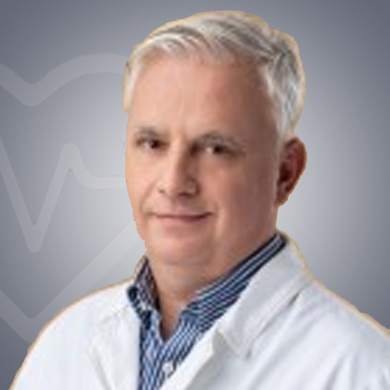
Dr. Attila Velich is a specialized ENT Surgeon in Hungary. And one of the most sought after medical specialists in Budapest, Hungary. The doctor has over 24 Years of experience and is associated with Dr. Rose Private Hospital.
Qualifications :
Hospital Address :
Budapest, Dr. Rose Private Hospital, Szchenyi Istvn tr, Hungary
What is the medical expertise of Dr Attila Velich?

Dr. Gabor Szakolczay Vrabel is a specialized ENT Surgeon in Hungary. And one of the most sought after medical specialists in Budapest, Hungary. The doctor has over 18 Years of experience and is associated with Dr. Rose Private Hospital.
Qualifications :
Hospital Address :
Budapest, Dr. Rose Private Hospital, Szchenyi Istvn tr, Hungary
Please make sure to see your doctor using Telemedicine before you even board a flight
Following are some of the best clinics in Budapest, Hungary with whom ENT Specialists are associated with:
Otolaryngology is the specialty area that deals with conditions of the ear, nose, and throat (ENT), and related areas of the neck and head. If you are experiencing a problem that is related to your nose, ear, and nose, you can see an ENT specialist, who is also known as an otolaryngologist, or an ear, nose, and throat doctor.
An ENT specialist may have also completed an additional 1-2 years of training in one of the following subspecialty areas:
ENTs deal with anything related to the head, neck, and ears in children and adults, including:
Candidates aspiring to become an ENT specialist must have a 5½ year-MBBS degree followed by MS (ENT) course. The candidates need to follow the below steps to become an ENT Specialist:
An ENT specialist or an otolaryngologist is trained in the treatment and care of a number of conditions that may affect the areas in and around the throat, ears, nose, head, and neck problems. Common conditions an ENT specialist may treat include:
If your ENT specialist suspects you might need surgery or any other treatment for your throat, ears, or nose, you may be recommended to undergo additional testing and screening. It ensures the accuracy of diagnosis so that the right treatment can start.
Your doctors and audiologists can perform a number of tests to help identify the nature of your condition. Besides specific tests for your throat, ears, and nose, doctors might recommend other blood tests or imaging, such as X-rays, MRIs, CT, and PET scans.
You need not see an ENT consultant in case you are having problems with your nose, ears, and throat, but it may be sometimes necessary to have specialist care. Knowing when to consult a specialist is crucial as it would ensure that you receive the help you require instead of bearing uncomfortable and painful symptoms.
Consult an ENT specialist if you experience below signs and symptoms:
Here is an overview of what you expect from your first visit with an ENT Specialist:
Top Medical Specialities in Budapest, Hungary are: